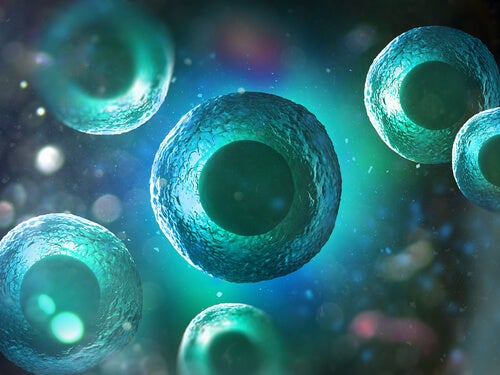Neuroscience: Can You Inherit Knowledge?

A recent study conducted at Tel Aviv University has called into question one of the underlying principles of biology: the Weismann barrier. This study is just the first step for further research into whether it’s possible to inherit knowledge.
A team led by Oded Rechavi, from the neurobiology department of the George S. Wise Faculty of Life Sciences, along with the Sagol School of Neuroscience, has discovered a mechanism in our RNA that allows neural responses to the environment to be inherited. Thus, that learned response would affect your children’s behavior.
They published the experiment on June 6, 2019. They conducted the experiment with Caenorhabditis elegans roundworms. The researchers were able to show that the cells in their nervous systems could transmit information to subsequent generations of worms.

Germinal lineage and if it’s possible to inherit knowledge
It seems that this RNA regulation mechanism would allow the nervous system of living creatures to communicate with germinal lineage. That lineage would affect the behavior of the following generations of that living creature. This is a fascinating new discovery.
Basically, if this research turns out to be true, our nervous system can play a part in what our offspring know. That discovery would be a complete contradiction of the Weismann barrier. Although it’s one of the most widely-accepted biological principles, a lot of experts doubt it.
The Weismann barrier
This theory states that the characteristics you inherit are within cells and the soma. Also, it states that there’s no way for them to be passed down to future generations. According to Weismann, this is the barrier that differentiates somatic cells and germinal cells (eggs and sperm).
August Weismann was a German biologist and geneticist. He presented his findings on hereditary information, or germ plasm inheritance, in a book published in 1892.
According to his theory, any changes to germinal plasma caused by your environment would only affect the genes you pass down to your children if they happened in the germinal plasma. This wouldn’t happen if the changes took place in the soma (body) of the cell.
Some experts have argued that the somatic-germinal barrier doesn’t work that way. However, for the most part, people have used this theory as the foundation for rejecting the idea that you can inherit acquired characteristics.
The recent study
The recently published study has given the Weismann barrier a run for its money. The researchers used the most advanced systems. In order to create variations on genes or mutant alleles, they used the CRISPR-Cas9 gene-editing tool. They also used calcium imaging (GECI) and a codified calcium indicator, GCaMP2.
In doing this, they created worms that produced endo-siRNA dependent on RDE-4 only in their neurons. The goal was to understand the inheritable effects of neural snRNA (small nuclear RNA). Calcium imaging allowed them to observe neural activity with optogenetic systems.

Inheriting knowledge: How it works
The study concluded that the snRNA in our neurons regulates the genes in the germinal lineage and can affect the behavior of future generations. The mechanism we’re talking about would control the expression of that gene in the germinal lineage for multiple generations.
More specifically, neural RDE-4 could control chemotaxis for at least three generations. It would do this through Argonaute HRDE-1, which is a substance only found in the germinal lineage.
Opening the door to more research
This discovery states that it’s possible for cells in the nervous system and in the germinal lineage to communicate. That’s what makes it possible for us to inherit the information or “knowledge” we’ve gained and pass it down to subsequent generations.
This research has vastly changed our understanding of the process. Also, it has massive implications regarding what we know about genetics, evolution, epigenetics, and the ability to inherit intelligence.
All cited sources were thoroughly reviewed by our team to ensure their quality, reliability, currency, and validity. The bibliography of this article was considered reliable and of academic or scientific accuracy.
Lev, I., Gingold, H., & Rechavi, O. (2019). H3K9me3 is required for inheritance of small RNAs that target a unique subset of newly evolved genes. eLife, 8, e40448. doi:10.7554/eLife.40448
Rosso, Cami (2019) New Neuroscience Discovery May Disrupt Biology. Study shows that nervous system cells can transmit information to progeny. Psychology Today
Easley, C. A., Simerly, C. R., & Schatten, G. (2014). Gamete derivation from embryonic stem cells, induced pluripotent stem cells or somatic cell nuclear transfer-derived embryonic stem cells: state of the art. Reproduction, fertility, and development, 27(1), 89–92. doi:10.1071/RD14317
This text is provided for informational purposes only and does not replace consultation with a professional. If in doubt, consult your specialist.








